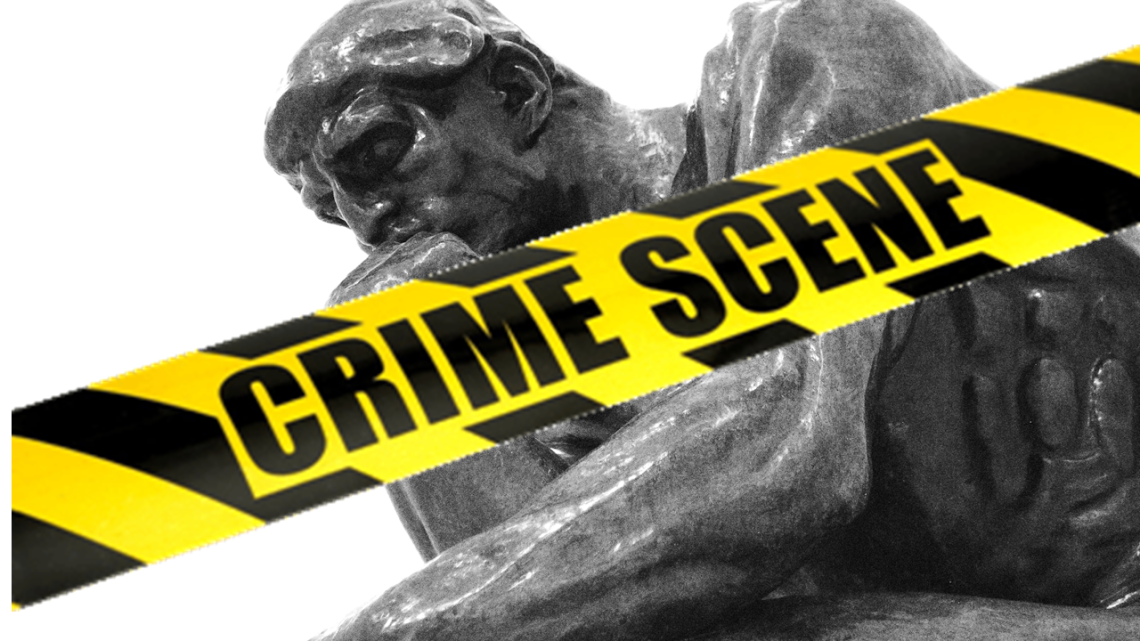“Human justice will never be perfect, and attempting to punish evil thoughts would only make it worse.
“That’s why actual human governments limit themselves to dealing with behavior.”
That’s what I wrote in last week’s post. And most people would agree. In fact, most people would agree that freedom of conscience — freedom to think, worship, believe, and say what one really believes — is foundational to any free society. One may believe, and even try to persuade others that anarchy — no organizational institutions at all — is the ideal society. The first amendment to the U.S. Constitution guarantees that we can speak aloud such ideas. Undertaking to destroy this order, one that has been established by the consent of the people, is something else altogether.
If you throw a Molotov cocktail through the window of a police station, you can expect to be prosecuted. At least that used to be the way things went. In the summer of 2020, many buildings were burned down, and few if any were punished in any way. The protesters were free to declare that an injustice had been done, but they were not supposed to be free to do more injustices, burning down structures and killing individuals who had nothing to do with the injustice being protested.
Not only did we see a period of time when flagrantly illegal behavior went unpunished, we have been living for some time in a regime where thoughts are punished, where expressing certain beliefs, even convictions, can and has been prosecuted.
Most of us don’t even realize that we live under threat of being fined or jailed for what we believe, for our strongly held convictions.
Find that difficult to believe? Some years ago, a man in Canada was prosecuted for an advertisement in which he quoted Scripture. The charge? “Hate speech.”
On the face of it, it seems perfectly reasonable, even necessary, to outlaw actions motivated by hate. And it would seem especially true that Christians, who are supposed to be known by our love, would want to do so. But experience and Scripture tell us that human motivations can be incredibly complex. We often don’t even know our own motivations. Indeed, Jeremiah warns us that, “The heart is more deceitful than all else and is desperately sick; who can understand it?” (Jeremiah 17:9). If we cannot know our own motives, then it is folly to presume that we can define the motives of others.
Worse, once we begin punishing thoughts and motives rather than actions, there is no limit to what thoughts might be punished. Punishing thoughts rather than actions does not represent a “slippery-slope,” where the first steps may be reasonable, but each further step increases the hazard. No, penalizing thoughts rather than actions is a leap off a precipice, which we may think safe for a time, however short, but the destination is certain and catastrophic.
Of all people, Christians should be aware of this problem. As previously mentioned, neither Jesus nor the Old Testament call for the punishment of those who violate the law — even the law of God — in thought only. From Genesis to Revelation, God repeatedly appeals to us, wants to allure us, to persuade us that he is right. He never attempts to force us. It is the enemy of souls who uses force, who demands, compels, and schemes to force us into allegiance to him.
While it is true that, in the end, those who do not worship God will die, it will be the result of their choice, just as surely as someone who ingests poison rather than nourishing food will die as a result of that choice. God will not force us to worship Him. Satan would like to force us, but Christ’s self-sacrifice prevents that and preserves choice.
But that still leaves us with the question, how are we to deal with heinous crimes which terrorize individuals because of their religion, national origin, ethnicity or skin color? We will take that question up next.










